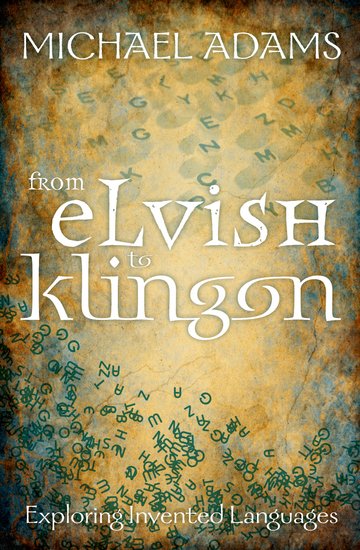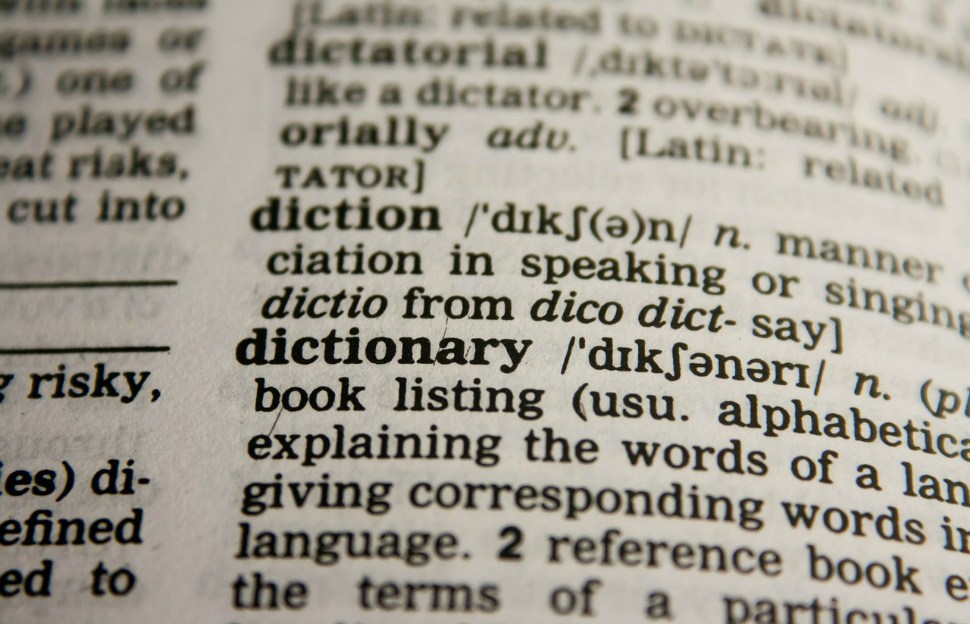John Tolley, September 6, 2016
Quick, what?s your favorite profanity? Whether it?s salacious or mild, everyone has one. Now, what does it mean? Do you always use it in that intended way, or does it mean a whole range of different things depending on the situation? Chances are, you?ve never really thought about it.
Indiana University professor Michael Adams certainly has. This self-described "historian of the English language? has long had a love for the art of language. While a graduate student at the University of Michigan, Adams worked on the Middle English Dictionary and soon found himself enamored with words as artifacts. Since then he?s devoted his career to studying our ever-evolving tongue. From his treatise on the slang used in Buffy the Vampire Slayer to his most recent work In Praise of Profanity, Adams offers a look at language that most of us take for granted.
BTN LiveBIG recently sat down with this past President of the Dictionary Society of North America to discuss the art of lexicography, the mutability of words, and how the profane can change from one age to another.
BTN LiveBIG: Did working on the Middle English Dictionary give you a sort of picture of the history of language over time?
Adams: Oh sure. That?s the purpose of a dictionary. The Middle English dictionary is interested in English as it developed only between about 1100 and 1500. You can look at it on different scales, and I do all the time. You can look at it as proto-Indo-European is bigger than Germanic is bigger than English is bigger than Middle English.
BTN LiveBIG: How do you put guard rails on what you?re studying given the way languages influence each other?
Adams: It?s very hard but?whatever you do, it will only be a partial picture, it will be inadequate. But the great thing about having a career is that you don?t have to be too restrictive with those guard rails. So, in the 1990s I started looking seriously at occupational jargon and then started doing the work in slang that led to Slayer Slang: A Buffy the Vampire Slayer Lexicon and then a book called Slang: The People?s Poetry which came out in 2009. And, I was interested in what you might think of as language at the fringe of experience, so then I went on to work with invented languages.

BTN LiveBIG: In your study of invented languages, have you found that the creators are trying to assert some sort of dominion over language?
Adams: Absolutely that?s what people are trying to do. Obviously somebody like [JRR] Tolkien writing languages for the Lord of the Rings just finds everyday language less aesthetically pleasing than he wants it to be. We use slang when we are dissatisfied with the language we are given and we feel we have to be innovative in order to communicate what it is we have to say. There may be a word that refers to the thing we are talking about in the vocabulary, but not a word that conveys the attitude, so you come up with slang.
Psychologically, the thing that binds invented languages and slang and, in some uses, profanity together is this dissatisfaction with languages and means of expression. When it?s raining cats and dogs and you dropped your backpack into a big mug paddle, and you raise your head to the sky and you cry out some expletive, you do that because you?re at the limit of expression. There is no word or sentence in the language that?s going to deal with your existential problem. You can say ?Well now that just really makes me mad? and the words mean to say the same thing but they don?t say the same thing. And so, all of my projects so far are connected by that sense that language betrays us sometimes when we need it and we are inventive because we?re dissatisfied with what we find in the language we?re given.
BTN LiveBIG: Moving on to discuss profanity a little bit, would you say that the English language is more or less profane now than it used to be?
Adams: Yeah. First thing is that there?s a difference between early profanity and later profanity in English. So in the Middle Ages you are probably comfortable talking about excrement and sex but in your profanity was when you cursed somebody or when you used God?s name in vain. And so you got all these historical euphemisms that people developed. You get into the modern period and - for all kinds of reasons: religious and economic and different social movements - people become squeamish about talking publicly about these very natural activities or things. And so, profanity is sort of the words [that] are already there and profanity gets made up to cover those terms you weren?t supposed to speak. The sense of taboo has lessened so much around profanity that you have to assume that people feel freer to use it in all kinds of context than they used to.
BTN LiveBIG: Would you say the same holds true for slang as well, that it has also become more prevalent in its usage?
Adams: Yeah it?s tough to know that because we don?t have empirical evidence from the earlier periods. But people have certainly noticed slang in the 19th century. Ralph Waldo Emerson talks about how it?s connected to poetic language. That?s one of the differences between profanity and slang historically: profanity made you seem vulgar when slang could make you seem racy or colorful. I think the change is that profanity in many of its uses is really just super expressive slang and it?s not as dangerous as it used to be though it?s still risky.
BTN LiveBIG: Given that the BTN.com is a wholesome website, I?m not going to ask you your favorite profanity, but what I will ask you is there a favorite slang term, one that just bowls you over?
Adams: No, not really. But I?m fascinated by what other people do and I operate by this maxim which is that that people speak the way they do for a reason and as a scholar of language my job is to figure out the reasons and to try to explain those coherently. So, I find it all just fascinating, human verbal behavior.







 Basketball is back! Find available live games on our B1G+ app via BigTenPlus.com.
Basketball is back! Find available live games on our B1G+ app via BigTenPlus.com. 